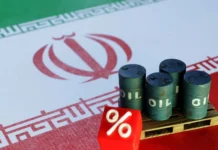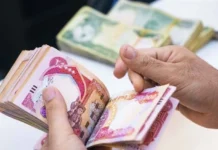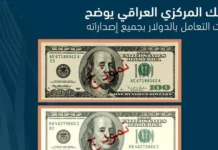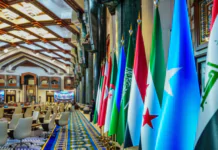Teacher Blunt Gunter dispatches another white paper on de dollarisation of Iraqi economy
Teacher Straightforward Gunter distributes another paper dispatched as a feature of a series by IBBC’s warning chamber on the difficulties of de-dollarisation for Iraq.
The Warning Gathering individuals and IBBC individuals have effectively added to the paper in the beyond 4 months. It will be introduced web-based on the eighteenth June in an online course and face to face at the Spring Gathering on second July. The Arabic interpretation will be distributed soon.
Register to join the webinar here.
Previous advisory papers include 2020, ‘Iraq 2020: Country at the Crossroads‘, ‘Corruption Worse Than ISIS: Causes and Cures Cures for Iraqi Corruption’, ‘Seaports and Airports of Iraq: Rules Versus Infrastructure’ and ‘Privatization of State-Owned Enterprises’.
Teacher Gunter gives an investigation of the drivers of effect on the dinar conversion scale and looks at how best to manage the equal market of dinars to dollars. He frames the useful arrangement drives that ought to decrease the hole between the authority and equal trade rates in the medium-term.
Specifically he commends the Public authority of Iraq on its obligation to handle defilement and to modernize the financial framework all at once however cautions of the tension on the dinar swapping scale as spending plans are overextended and the new financial beneficiaries (state banks) get the liquidity to empower the economy to perform.
He composes ‘Every one of the three of these powers – the counter defilement exertion, the financial advancement, and the rich 2023-2025 spending plan – will make difficulties for the administration of the dinar swapping scale. One could contend that throughout the course of recent many years the Public authority of Iraq (GoI) had little command over its swapping scale; that conversion standard not entirely settled by different areas of the political economy in Iraq. In any case, regardless of whether this is valid, the level of the conversion standard and changes in that level are trusted by numerous Iraqis and outsiders as giving significant knowledge into the nature of financial administration in Iraq. This significance is exemplified by the ongoing endeavors to de-dollarize the Iraqi economy while there is overabundance interest for dollars. This overabundance request is shown by an equal swapping scale of around 1500 dinars for every dollar contrasted with the authority conversion standard of 1310 dinars for each dollar.
A significant reason for this swapping scale hole is that the GoI, with the solid support of the U.S. Central bank, is endeavoring to diminish the utilization of the U.S. dollar in both Iraq’s inward economy and its outside exchanges. Beginning around 2003, the U.S. dollar has worked with monetary development in Iraq by giving a broadly acknowledged mode of trade for buys as well as a solid store of significant worth for reserve funds. Over the long haul, whether de-dollarization will unfavorably affect the Iraq economy will rely on how quickly the GoI can increment both the productivity of elective modes of trade and the apparent security of elective stores of significant worth.’
The report is available here to download.





